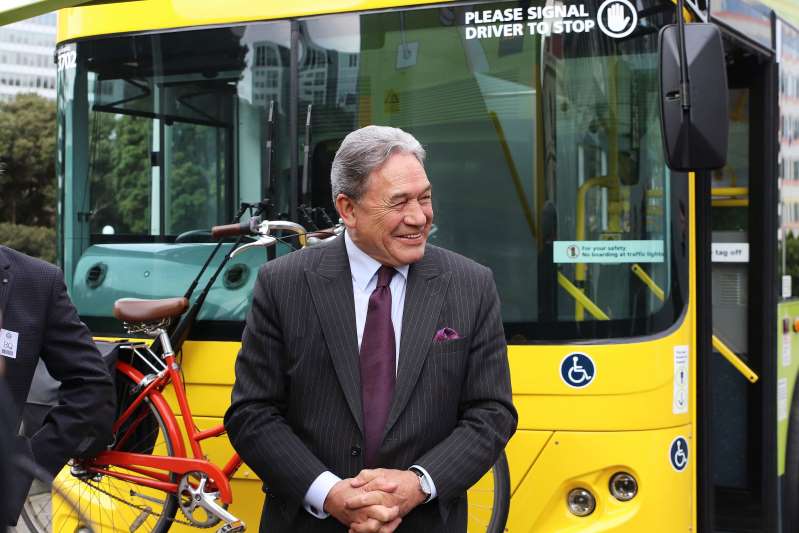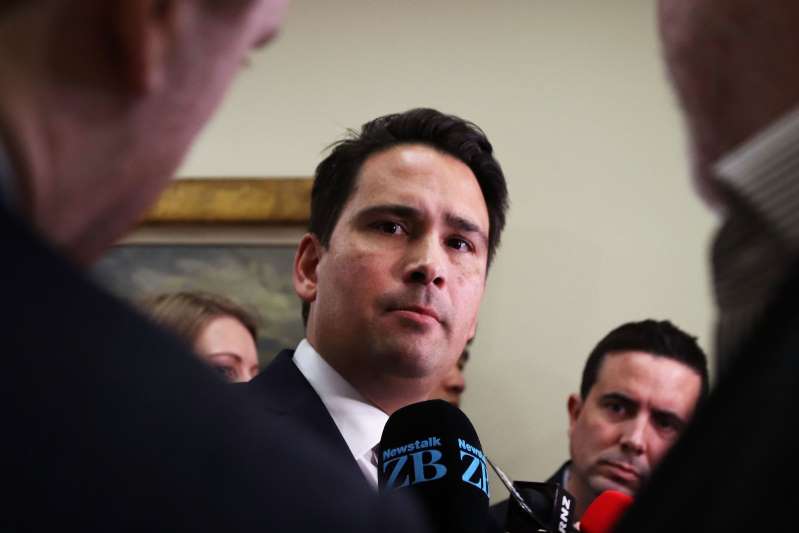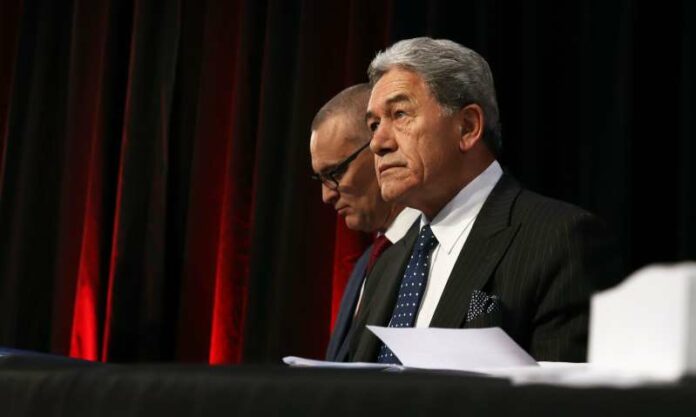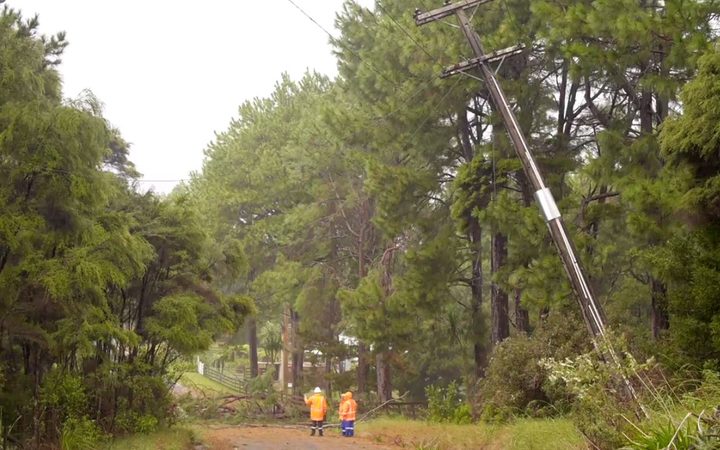ew Zealand First heads into its conference rocked by a leak of member data, the resignation of its president, and uncertainty about its electoral prospects – but Winston Peters insists his party is stronger than ever.
“I’m not immortal.”
It would be a redundant statement coming from most, but for Winston Peters the sentence is not without significance.
At times, the New Zealand First leader has seemed like a political highlander – to his enemies, perhaps a cockroach – able to withstand almost any blow to his reputation or electoral viability.
But in recent months, there has been an increased sense of vulnerability for both the man and his party.
A secretive but “serious” operation, followed by a debilitating infection, put Peters out of parliamentary action for weeks, with the vintage suits pulled out of storage for his return a sign of the weight loss from his medical travails.
In recent weeks, the leak to media of confidential party documents – including a database of members’ private information – has caused a stir, while party president Lester Gray’s resignation for what he told Stuff were “moral” reasons over questionable financial reports was an unwelcome spanner in the works ahead of New Zealand First’s annual conference in Christchurch this weekend.
Predictably, Peters dismisses any suggestion of division when speaking to Newsroom, arguing the opposite is in fact the case.
“The so-called leaks out of a small pocket in Auckland and complaints about not being higher on the list in 2017 has actually rejuvenated certain sections of the party and made them more rock solid than they’ve ever been, because they just can’t stand the idea that you would have a complaint based on where you are on the list.”

Complaints about electoral strategy and missed opportunities are ignorant according to Peters, with New Zealand First riding high in the 2017 polls before Labour “dropped its bundle” and changed leaders to dramatic effect (although his claim that Labour had fallen to 20 percent and his own party ascended to 19 is not supported by public polling from the time).
He is equally disdainful about Gray’s fiscal concerns, saying that the party’s previous secretary, acting secretary, and auditors had all signed off the party’s financial accounts.
“The reason he gave you for his resignation is not the reason, that’s all I can say.”
Peters revels in his reputation as a handbrake on the current coalition, keeping the wild ideas of Labour and Green politicians in check, and that rhetoric seems set to increase with election day creeping closer.
“It’s the reality of New Zealand First, we’re the only party in the centre in this country,” he says.
“I had a meeting with the CTU at midday and a big business meeting at six o’clock that night, the same message, there’s one party that’s neither on the hard left or the hard right and represents the middle.”
That CTU appearance was fairly fraught, with Peters sledging the unionists for their alleged inaction under the “neoliberal” National government and in turn being pressed on whether his party would support Labour’s plans for industry-wide fair pay agreements – an affirmation he would not give.
“We’re a common sense party, we’re the ones that said we’re not against fair pay, but the conditions in Kaitaia for employment are not the same as in Auckland, everyone understands that,” he tells Newsroom now.
“What do you want at the end of a fair pay exercise? You want happy workers and happy employers, not a whole lot of workers out of a job and a business that’s gone bust.”
Mixed results on migration
One area where all three coalition partners are closer to the same page is the need to cut back net migration numbers – but the Government has not lived up to its targets (or estimates) so far, as Peters acknowledges.
“The truth is, we’ve been slow off the mark in that context – there’s a lot of analytical work which has been a sign of the lack of preparedness of the immigration department,” he says, specifically targeting the classification of Kiwis returning home after years away as migrants.

But net migration numbers have still dropped, he says, while the quality of migrants has “dramatically increased”.
Peters confirms New Zealand First will campaign on deeper cuts to migration levels in 2020, but hedges on the exact scope of any proposals, citing the need for some “serious updated analysis” on the impact of a more automated economy and other changes to the future of work.
“We may have to bring people in to make up the void, as we have done in some cases in hospitals and schools.”
The two most recent political polls have proved worrying for the Government, but New Zealand First may not feel too uncomfortable sitting on around four percent with a year to rark up the faithful and peel off some wavering voters from the left and the right.
That Peters and his caucus would again lean towards Labour seems obvious: after all, in less than a month he will head to the High Court seeking nearly $1 million in damages from former ministers and current National MPs Anne Tolley and Paula Bennett for their alleged involvement in the leak of his superannuation overpayment.
But he says New Zealand First will not rule anybody out or in, noting his party has never made any pre-election deals with another party – although he offers this addendum: “If we are to work with certain political parties, [there are] substantial changes and compromises they’d have to make as well, in the same way that we’d have to make them.”
Could a Simon Bridges-led National Party make the sort of changes needed to win Peters and his party over?
“It would require a hitherto unseen, serious update on his knowledge of economics, and dare I say it philosophy – but nobody is beyond redemption.”
One safeguard against electoral oblivion for New Zealand First would be an electorate deal.
Peters swiped the Northland seat off National in the 2015 by-election with the Greens not standing a candidate and Labour tactically nudging their voters to back the political veteran, only to lose it back in 2017 when Labour’s Willow-Jean Prime increased her vote tally by more than 7000 – far higher than the 1389-vote margin separating Peters from National’s Matt King.
Peters says no deal was done in 2015 and National was in for “a thrashing” regardless of who else ran, but offers a nudge of his own to his coalition partners for next year.
“It does occur to us though of course, it might have occurred to the Labour Party and the Greens as well that came the last election they didn’t have a hope in Hades of beating National, only one party did.
“Perhaps they need to think a bit in terms of the future – it’s over to them, they’ve got to answer that to their own constituency.”
And so to Peters’ facetious confession of mortality, admittedly preceded by a poorly phrased question about whether he will run for Parliament indefinitely.
While everyone has taken this for granted, Peters confirms he will be standing for re-election next year – “God willing” – but says a life sentence is not for him.
“The day I’m not interested or motivated by this job, I’m off. I’m not like some of these people who can’t leave the place, all want government jobs – it’ll be Sydney or the bush so to speak with me.
“I never thought I’d be in politics at this time in my life, but the fact is the causes and issues on which we campaign are as relevant now, probably more relevant than they ever have been.”





























